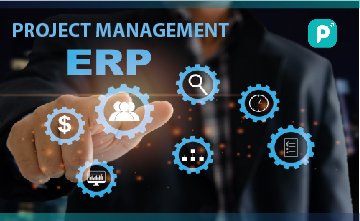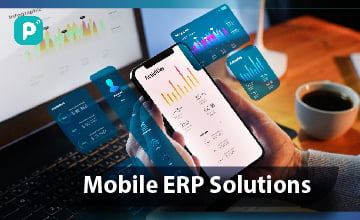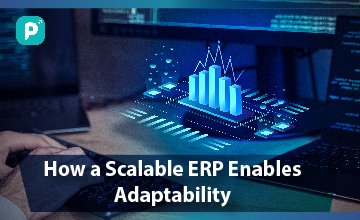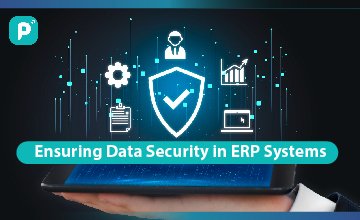When you use a project management ERP or a manufacturing ERP designed for projects, it means you have better control over the things that affect how much money the project makes. It also helps find ways to do the work more efficiently and get better results. It’s like having a tool that not only keeps everything in check but also shows you how to do things better to make the project more successful.
In this blog we’ll talk about common problems in business project management and how using an ERP system can solve them.
Role of ERP in Project Management
The role of Enterprise Resource Planning (ERP) in project management is multifaceted, providing essential functions that contribute to project success.
Streamlining Workflows
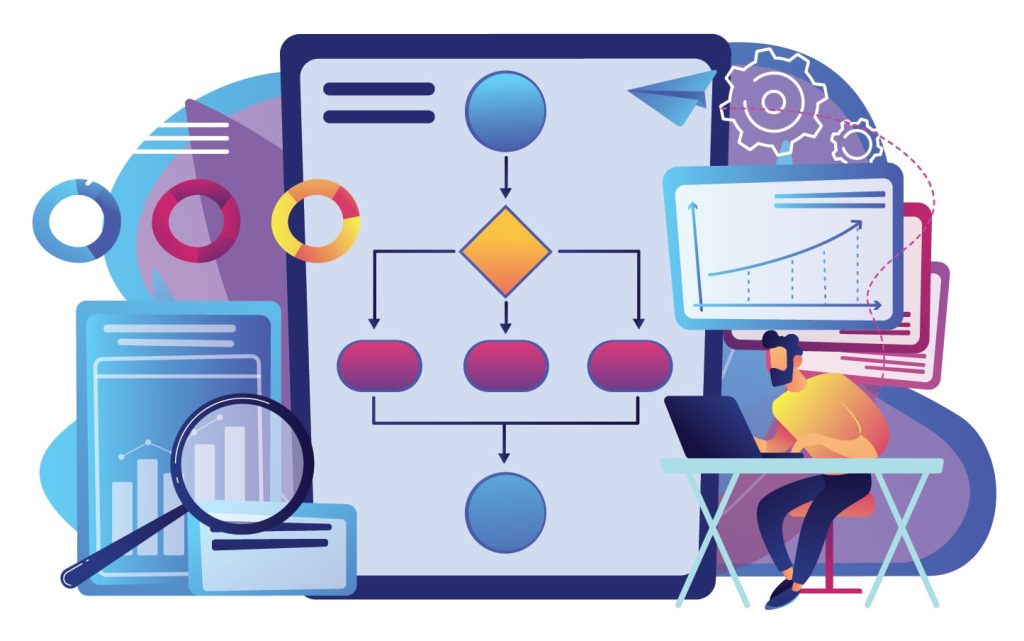
- Centralized Project Data Management: ERP serves as a centralized hub for project-related information, ensuring easy access and management of crucial data.
- Automation of Task Assignments and Progress Tracking: ERP automates the assignment of tasks and tracks progress in real-time, promoting efficiency and reducing manual workload.
- Enhancing Collaboration Among Project Teams: By facilitating seamless communication and document sharing, ERP fosters collaboration among team members, promoting a cohesive and coordinated project environment.
Efficient Resource Allocation
- Real-time Visibility into Resource Availability: ERP systems offer real-time insights into the availability of resources, enabling project managers to make informed decisions.
- Optimization of Resource Allocation Based on Project Priorities: ERP helps prioritize resource allocation according to project needs, ensuring that critical tasks receive the necessary attention.Balancing Workloads to Prevent Overburdening Team Members: ERP assists in distributing workloads evenly among team members, preventing burnout and ensuring optimal productivity.
Key Features of ERP in Project Management
The integration of project data and the scalability and customization capabilities are key features that make ERP systems invaluable in project management. These features contribute to enhanced communication, collaboration, and the ability to meet the evolving needs of diverse projects.
Integration of Project Data
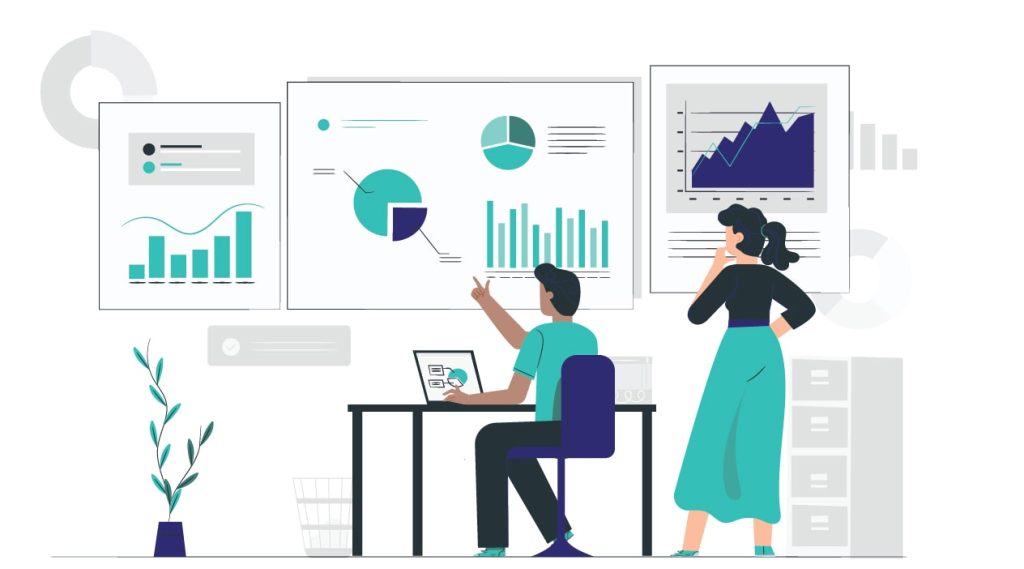
- Connecting Various Project Components for Seamless Information Flow: ERP integrates diverse project elements, creating a unified platform where data can seamlessly flow between different aspects of the project. This connectivity ensures that information is readily available to all stakeholders.
- Breaking Down Information Silos for Improved Communication: ERP eliminates data silos by centralizing project information. This fosters improved communication among team members, departments, and project stakeholders, promoting a collaborative and transparent project environment.
Scalability and Customization
- Adapting to the Specific Needs of Different Projects: ERP systems are designed to be adaptable, catering to the unique requirements of each project. This flexibility allows organizations to tailor the ERP to meet the specific demands and intricacies of different projects.
- Flexibility for Future Growth and Changing Project Requirements: An essential feature of ERP in project management is its scalability. As projects evolve and organizations grow, ERP systems can easily scale to accommodate increased data, users, and changing project dynamics. This adaptability ensures that the ERP remains a valuable asset in the long term.
Future Trends
The future trends in ERP for project management will be marked by the integration of advanced technologies, a focus on mobile and remote capabilities, and alignment with emerging project management methodologies and tools. These trends aim to enhance the efficiency, agility, and adaptability of ERP systems in addressing the evolving needs of project management in the coming years.
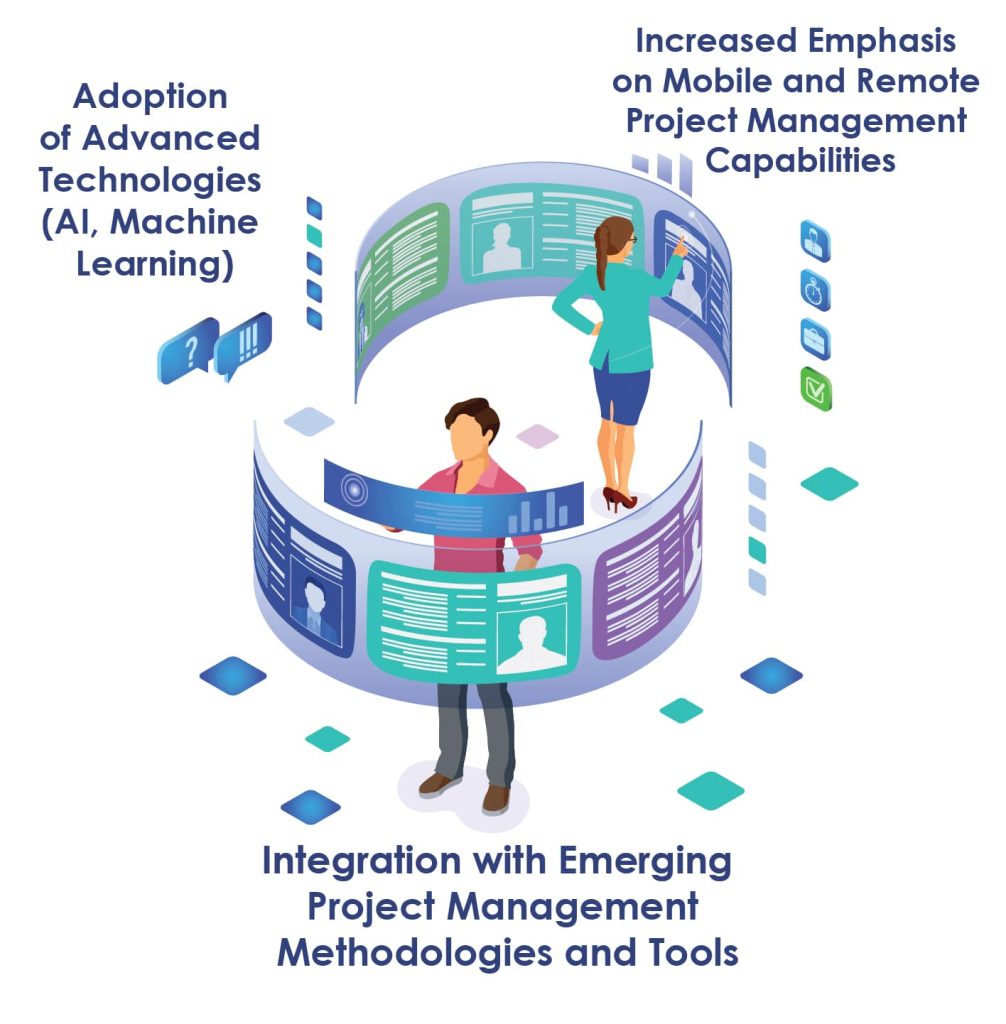
Adoption of Advanced Technologies (AI, Machine Learning)
The future of ERP in project management will witness a significant adoption of advanced technologies, particularly Artificial Intelligence (AI) and machine learning. These technologies will play a pivotal role in automating routine tasks, predicting project outcomes, and providing valuable insights for better decision-making. AI-driven analytics can enhance project forecasting, risk management, and overall project performance.
Increased Emphasis on Mobile and Remote Project Management Capabilities
The evolving landscape of work will drive a greater emphasis on mobile and remote project management capabilities within ERP systems. As remote work becomes more prevalent, ERP solutions will focus on providing robust mobile interfaces and functionalities to enable project managers and team members to collaborate and manage projects efficiently from anywhere. This trend aligns with the growing need for flexibility and adaptability in work environments.
Integration with Emerging Project Management Methodologies and Tools
The future of ERP in project management will involve seamless integration with emerging project management methodologies and tools. As new methodologies gain prominence, ERP systems will adapt to support these approaches, ensuring compatibility and efficiency. This integration may involve connectivity with agile methodologies, DevOps practices, and other innovative project management frameworks, providing organizations with a comprehensive and adaptable project management solution.
Challenges
Addressing challenges related to resistance to change, managing implementation costs, and ensuring data security and privacy are crucial considerations when implementing ERP for project management. A strategic approach, effective communication, and a focus on security measures are key to overcoming these challenges and ensuring a successful ERP implementation.
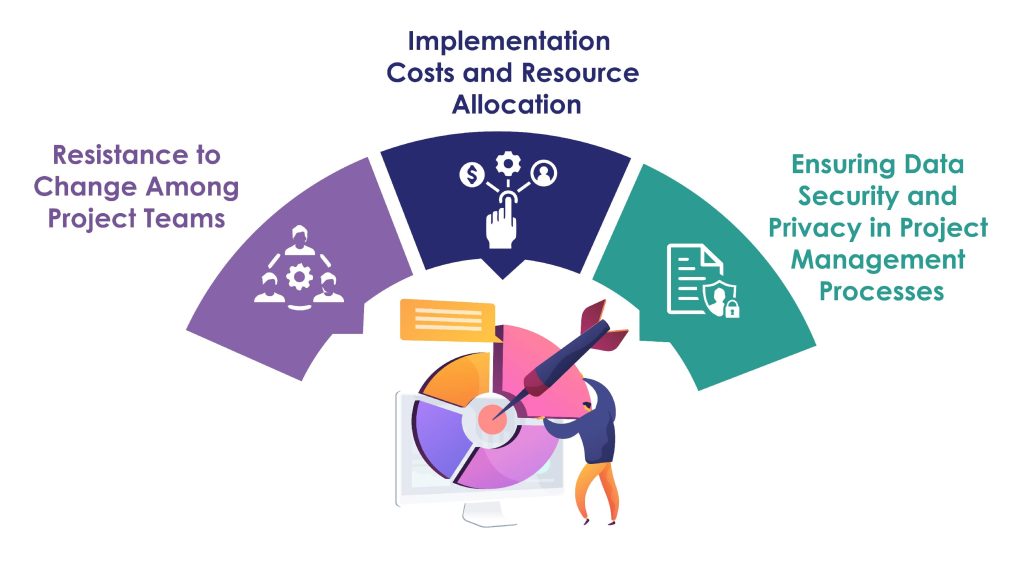
Resistance to Change Among Project Teams
One of the foremost challenges in implementing ERP for project management is the resistance to change among project teams. Employees may be accustomed to existing workflows, and introducing a new system may lead to apprehension and reluctance. Addressing this challenge involves effective communication, training programs, and highlighting the benefits of the ERP system to garner support and cooperation from the project teams.
Implementation Costs and Resource Allocation
The upfront costs associated with implementing ERP for project management, along with resource allocation, pose significant challenges. Organizations must carefully consider and plan for the financial investment, ensuring that it aligns with the expected benefits. Adequate resource allocation, including skilled personnel and time commitments, is crucial for a successful implementation. Organizations should conduct thorough cost-benefit analyses and create realistic implementation timelines to mitigate these challenges.
Ensuring Data Security and Privacy in Project Management Processes
Data security and privacy are paramount concerns in project management processes facilitated by ERP systems. Ensuring that sensitive project data is secure from unauthorized access or cyber threats is critical. This challenge necessitates the implementation of robust cybersecurity measures, encryption protocols, and access controls. Additionally, compliance with data protection regulations is vital to safeguarding the privacy of project-related information. Organizations must incorporate stringent security measures as an integral part of the ERP implementation strategy.
Conclusion
In conclusion, the integration of ERP in project management proves to be a powerful tool for streamlining workflows and optimizing resource allocation. The key features of ERP, such as centralized data management and scalability, enhance communication and adaptability to project needs. Future trends, including advanced technologies and mobile capabilities, promise to elevate project management efficiency.
Despite these advantages, challenges like team resistance and implementation costs must be navigated, emphasizing the importance of strategic planning. As the ERP landscape evolves, its role in project management will continue to shape the future of efficient, collaborative, and adaptable project execution.
Broaden your customer reach, explore cutting-edge marketing approaches, and propel your business growth. Visit our website now for comprehensive details!
All images belong to their respective owners. Please email [email protected] if removal is required.

